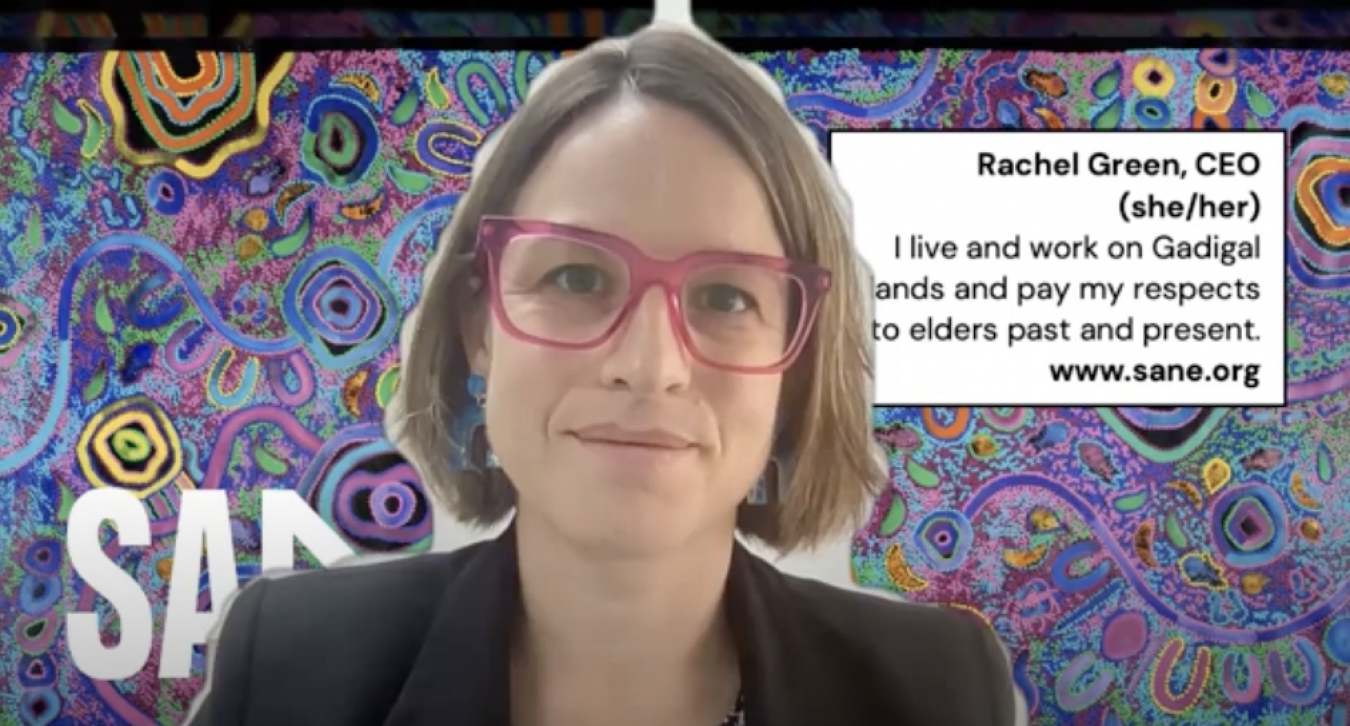A new survey of 1,000 people affected by persistent and severe mental illness and trauma gives a shameful snapshot of a system that fails to be affordable, accessible or adequate.
SANE was invited to share these findings at the Federal Government Forum on mental health access and equity on Monday.
Respondents revealed that growing gap payments for psychological and psychiatric services, and a complex National Disability Insurance Scheme (NDIS) pathway, has resulted in a shocking number of people not receiving any form of mental health support.
The majority of respondents were living with three or more diagnoses, yet many were struggling to access basic mental health care through an overburdened public system.
The revelation that 23 per cent have been turned away from services because their needs are too complex reinforces recent data showing increases in mental health presentations at already crowded hospital emergency departments1.
SANE CEO, Rachel Green says those affected have been forgotten and it’s time for initiatives like Better Access to be driven by those with lived experience rather than mental health providers and policy makers.
‘The Better Access initiative has always been a blunt tool to provide universal care for the majority and hasn’t adequately supported those with complex mental health needs and become skewed towards those who are able to pay,’ Ms Green says.
‘This SANE Bridging the Gaps Survey demonstrates that addressing wait lists and excessive gap payments is one element in the need for a system overhaul and a Federal Government commitment to supporting those with acute mental disorders.’
KEY FINDINGS - SANE Bridging the Gaps Survey- January 2023
- 11 per cent are not receiving any form of mental health support because they cannot afford it.
- 40 per cent of respondents are NOT accessing any psychological care and more than 50 per cent said they needed MORE access to psychology.
- 63 per cent have three or more diagnosed mental health conditions that require more than one mental health professional but 34 per cent have access to only one.
- 23 per cent have been turned away from services because their needs are too complex
- 85 per cent are not receiving NDIS services.
- One in three psychologists have closed their books to new patients2 and the median gap copayment for psychological care has increased to $90 per session3.
Click here for more survey results
‘The current single lane system is unaffordable and inaccessible for those who need it most according to the Government’s own recently released evaluation.’
‘It’s not just about offering more sessions, we need to disrupt the current system to ensure those needing acute care are not standing in the same long queue as those with less urgent needs.
‘We need to adapt the current ‘one-size-fits-none’ Better Access scheme to provide pathways for more diverse treatment and support options outside of traditional psychology and psychiatry.’
‘SANE has piloted a unique online support-based service that works with vulnerable individuals as part of their team with extremely promising results, but it’s currently not funded to be delivered nationally.
Click here to hear more from SANE CEO Rachel Green
More than a million Australians are affected by complex mental health, which includes but is not limited to, major depression, bipolar disorder, anxiety disorders, schizophrenia, borderline personality disorder, obsessive-compulsive disorder (OCD), post-traumatic stress disorder (PTSD) and eating disorders.
1 https://www.aihw.gov.au/mental-health/topic-areas/emergency-departments
